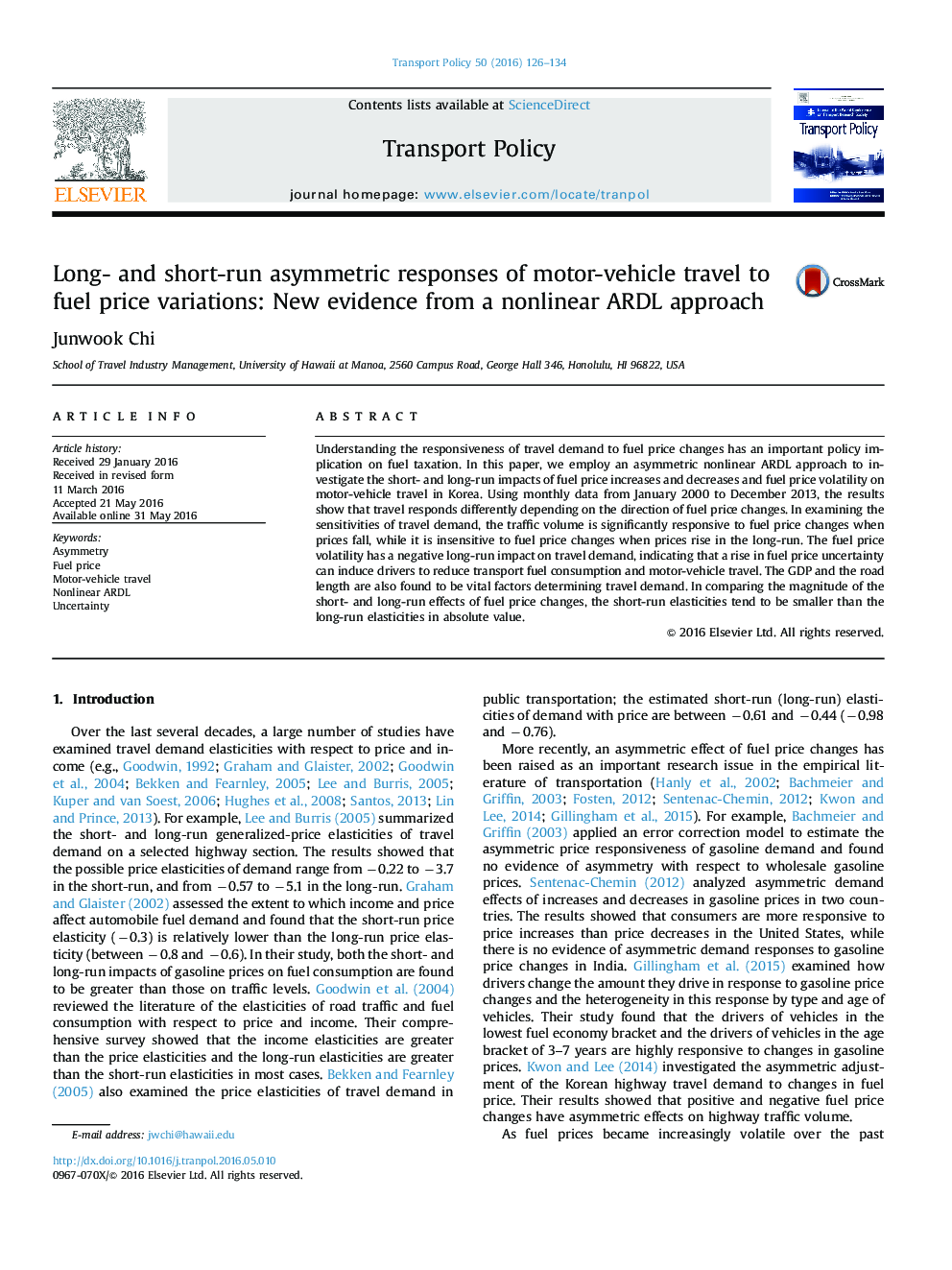| Article ID | Journal | Published Year | Pages | File Type |
|---|---|---|---|---|
| 1064694 | Transport Policy | 2016 | 9 Pages |
•We examine the asymmetric effects of fuel price variations on motor-vehicle travel.•We find that travel responds differently depending on the direction of fuel price changes.•Fuel price volatility has a negative long-run impact on travel demand.•GDP and road length are also found to be vital factors determining travel demand.•The short-run elasticities tend to be smaller than the long-run elasticities.
Understanding the responsiveness of travel demand to fuel price changes has an important policy implication on fuel taxation. In this paper, we employ an asymmetric nonlinear ARDL approach to investigate the short- and long-run impacts of fuel price increases and decreases and fuel price volatility on motor-vehicle travel in Korea. Using monthly data from January 2000 to December 2013, the results show that travel responds differently depending on the direction of fuel price changes. In examining the sensitivities of travel demand, the traffic volume is significantly responsive to fuel price changes when prices fall, while it is insensitive to fuel price changes when prices rise in the long-run. The fuel price volatility has a negative long-run impact on travel demand, indicating that a rise in fuel price uncertainty can induce drivers to reduce transport fuel consumption and motor-vehicle travel. The GDP and the road length are also found to be vital factors determining travel demand. In comparing the magnitude of the short- and long-run effects of fuel price changes, the short-run elasticities tend to be smaller than the long-run elasticities in absolute value.
